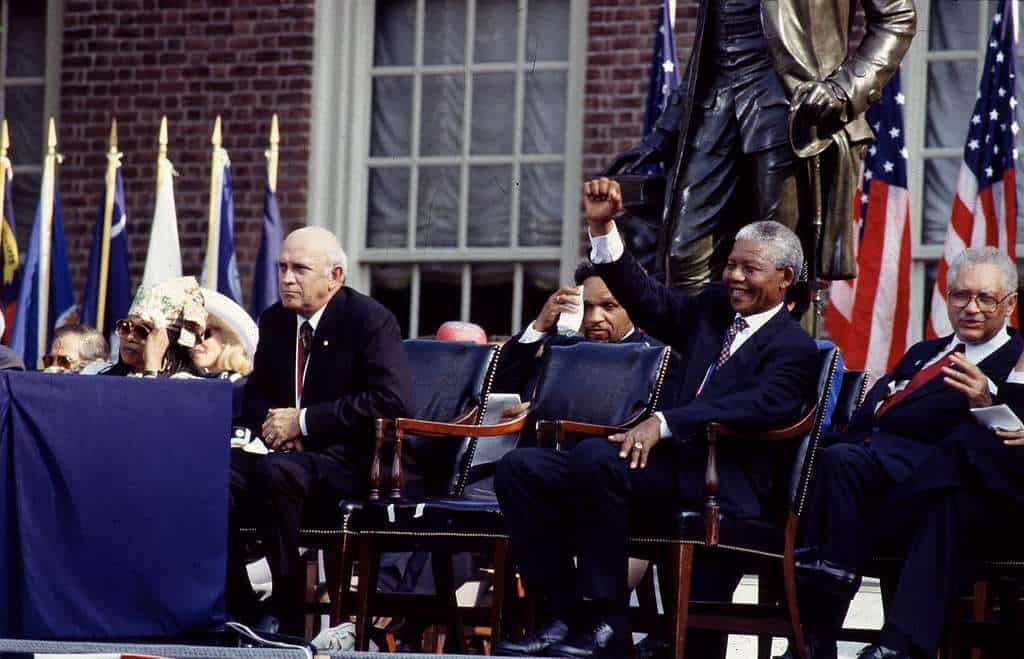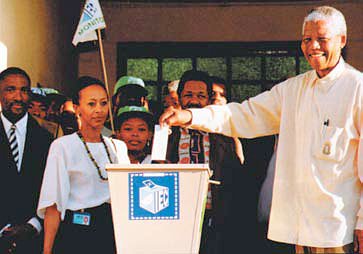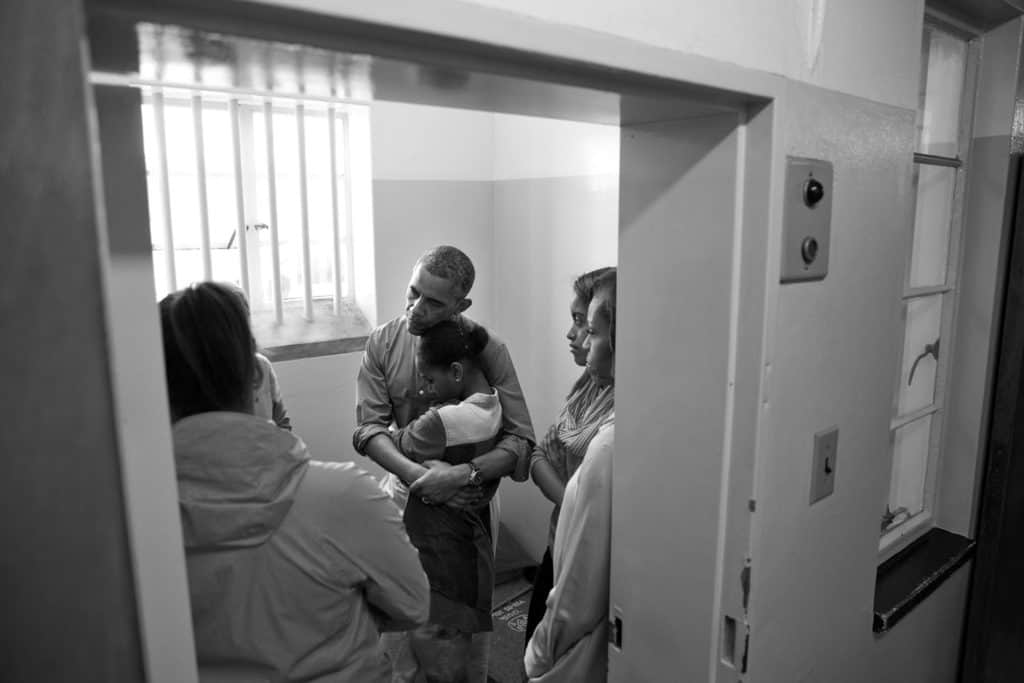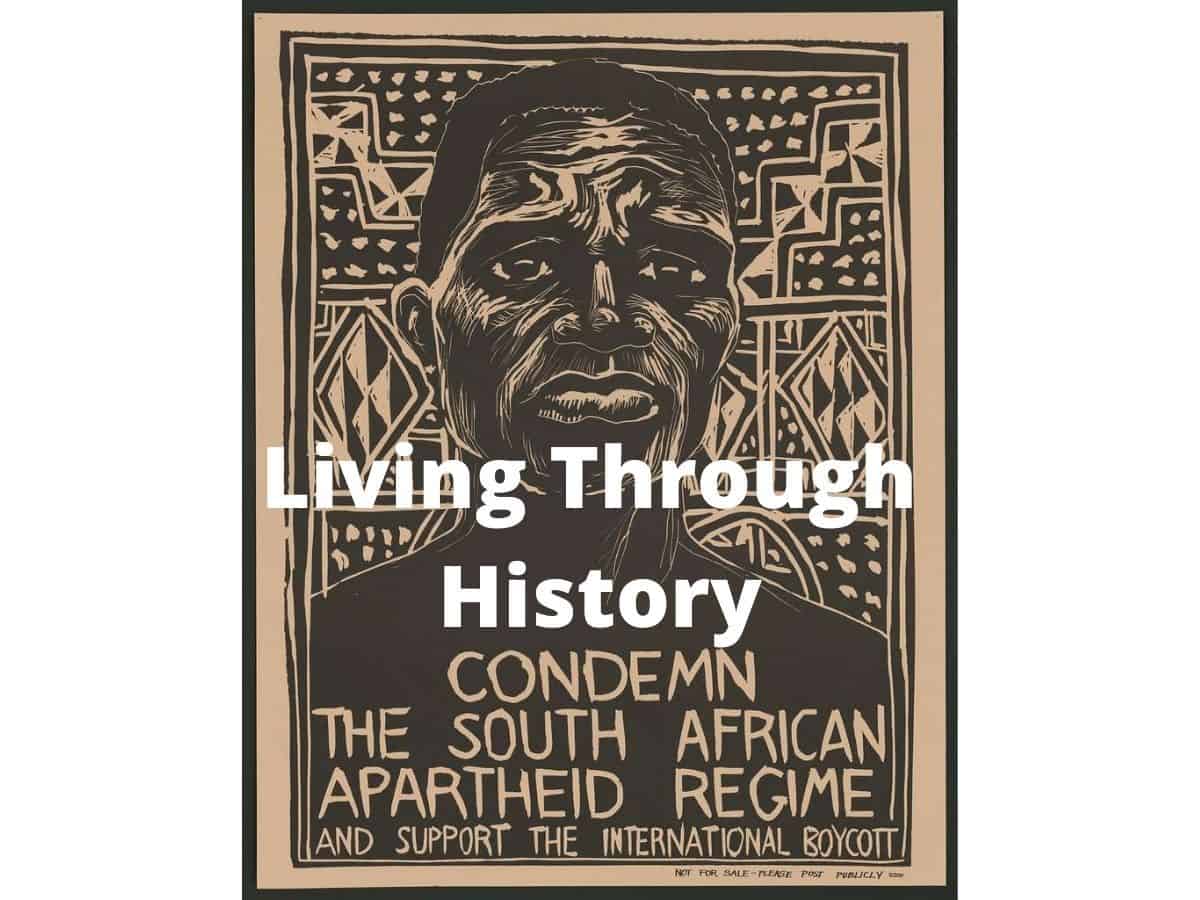With one of the most impactful elections for America’s long-term future coming up in November of this year, it may be valuable to take a step back and look at some of the most important elections in history. I want to use the transition away from Apartheid in South Africa, and the election of Nelson Mandela, to examine massive transitions in power, the value of elections, and what images can tell us about living through historical events.
IMAGE 1

Context:
Nelson Mandela was the leader of the African National Congress (ANC), and he worked to peacefully transition power away from the brutally racist Apartheid government of F.W. de Klerk. In 1993, the two met with then President Bill Clinton to both be awarded the Liberty Medal for their peaceful efforts.
Icebreaker Prompt:
Questioning: Analyze the image. Brainstorm a list of questions. Are the questions closed or open? Rank them in order of individual curiosity.
Response:
1. Why is F.W. de Klerk at the meeting if he was the President of the racist government
2. Why is Nelson Mandela chosen to be the leader of the ANC?
3. Does this award have any implications on the elections coming up in 1994?
4. Why hold the meeting in Philadelphia?
5. Who looks excited and who doesn’t? Why or why not?
IMAGE 2

Mandela casting his vote in 1994
(Source)
Context:
The first free and fair elections were held in South Africa in 1994. Nelson Mandela is seen here casting a vote for himself (as leader of the ANC party). He would win overwhelmingly and become one of the most beloved figures in modern South Africa.
Icebreaker Prompt:
Thought Bubbles: Analyze the image. What do you think the subjects in the image are thinking or saying?
Response:
Nelson Mandela: He seems joyous in this photo. I think he must be thinking about this opportunity to lead, his inevitable win, and his ability to cast a vote for the first time in his life is a vote for himself to be President.
IMAGE 3

Context:
US President Barak Obama visited Robben Island in 2013, the jail where Nelson Mandela spent several years as a political prisoner before becoming the first black President of South Africa in 1994.
Icebreaker Prompt:
Caption Writer: Analyze the image. Does it contain a caption? Does the caption help the viewer understand the image? Write a new caption for the image.
Response:
President Barak Obama and family visiting Nelson Mandela’s cell at Robben Island in 2013.


I thought these were great choices for your images! I like how they all had a very different context but were united around the same theme. I also thought your comparison between this historical moment and our upcoming election made this feel very relevant.
I love all these images. I don’t think apartheid gets discussed enough today in the U.S. as an example of another country reckoning with their inherently racist past. I love the second picture because it gives the impression that this time was truly one of the wide-spanning systemic changes in South Africa. This definitely seems relevant today and would be great to explore in class with our students.
I do feel like somehow Apartheid gets the short shrift when it comes to history. It feels so relevant right now.
I agree with Maggie and Nicolas – great selection. And they speak to the magnitude of Mandela’s legacy from a variety of perspectives. I really laughed at the “who looks excited / doesn’t” question. And the photo of Obamas is so powerful.
Having been an adult during the apartheid era, I remember the draconian system and worldwide protests well. They come to mind in the BLM era when I reflect on how such a small minority of Afrikaners kept such an overwhelming majority of Africans in control.
As the USA transitions to a majority non-white population, in the decades ahead, we don’t want to repeat that injustice. Glad to see so many whites here speaking out against systemic racism.
I’d love to hear more about your experience with protests and boycott! My sister-in-law is South African and has some very interesting perspectives on how Mandela’s legacy (and shadow) has shaped SA politics since then.
I would love to see the US perform the kind of intense introspection needed to make a kind of shift away from systemic racism….I don’t know how close we are to that…